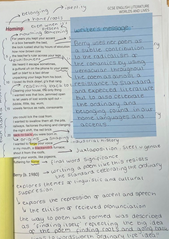A-Level English Language teachers probably don’t need to be reminded about how quickly their subject matter – the words, sounds and structures of the language – changes: they’re usually pretty immersed in the flow and churn of that every day in their classes. But it’s definitely one of the real pleasures of teaching this course to be able to spot something about language in the news and think, “Aha, there’s the basis of a good lesson.”
So, when I saw the BBC headline ‘Is commuting changing Welsh accents?’ I was intrigued. Accent change is one of those things that we hear a lot about in the media. Are accents disappearing? Are we all starting to sound the same because of social media, migration, globalisation and/or young people’s lack of interest in local traditions and history? The answer is – like language itself – quite complex and multi-faceted.
Many linguists have identified dialect levelling as something that’s a real thing and something that has been happening for some time, probably hundreds of years. This is the gradual flattening out of local variation in accent and dialect into broader ‘supralocal’ features, so for example the individual accent characteristics of three or four small towns in Suffolk merging to become something less locally distinct but still identifiably East Anglian, or in the case of the BBC story on Welsh accents, as they put it “some of south Wales' accents… becoming less prominent among the young and being replaced by a more uniform one”.
It’s something that Amanda Cole and I covered in the free New Directions download when looking at the work of David Britain, Adrian Leemann and Tamsin Blaxter (among others) with the English Dialects App and the patterns they observed in the East of England. In fact, there are several studies about dialect leveling in different parts of the country that are covered in the pack and well worth a look. It's also something that Danielle Turton at Manchester University noticed in her work on rhoticity (the pronunciation of a ‘rolled r’ sound in words like farm, turn and well…Blackburn andBurnley) in the North West of England. You can hear an interview with Danielle here on the Lexis podcast, where she discusses the idea that pretty much all of England used to pronounce the ‘r’ sound in those words but how that linguistic pool has now evaporated into a few much smaller and more isolated puddles like those in the North West and around parts of the West Country.
And if you want your students to hear more about the history of this kind of dialect research and what’s being done to bring it up to date, Rosie Hall from the Dialect and Heritage Project based at University of Leeds will be talking about it all at our emagazine London conference towards the end of November and has written a piece for December’s emagazine about it.
All of this is pretty interesting in its own right because it gives us a sense that language has always been on the move, even when people themselves weren’t moving very fast or very far, and that what’s happening now is simply a new stage of that change. But it’s also interesting from a social dimension because there are more than just historical factors at work: there are individual people and groups of people driving these changes, and linguistic choices being made that relate to issues of identity and belonging. Speculating about the kinds of changes taking place, Mercedes Durham, who is leading this study into Welsh accent change at Cardiff University, says, “Maybe younger people in Cardiff want to show they are more broadly Welsh so they are picking up features that are used in the surrounding areas in a way that older speakers did not find they had to do”. As ever, language is all about the humans who use it.
So, is it commuting that’s making Welsh level out? We might have to wait and see because the research by Mercedes Durham and her team is still ongoing, but you can be sure to hear more about it, and other research like it, from us, either through blogs like this, or through the pages of emagazine and future conferences!







